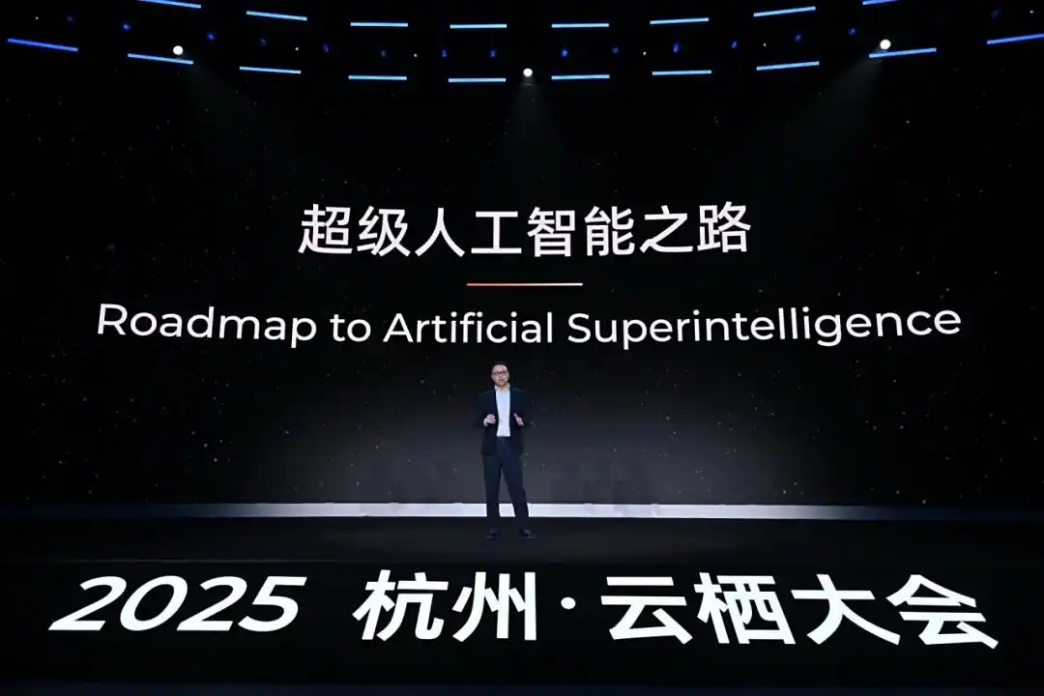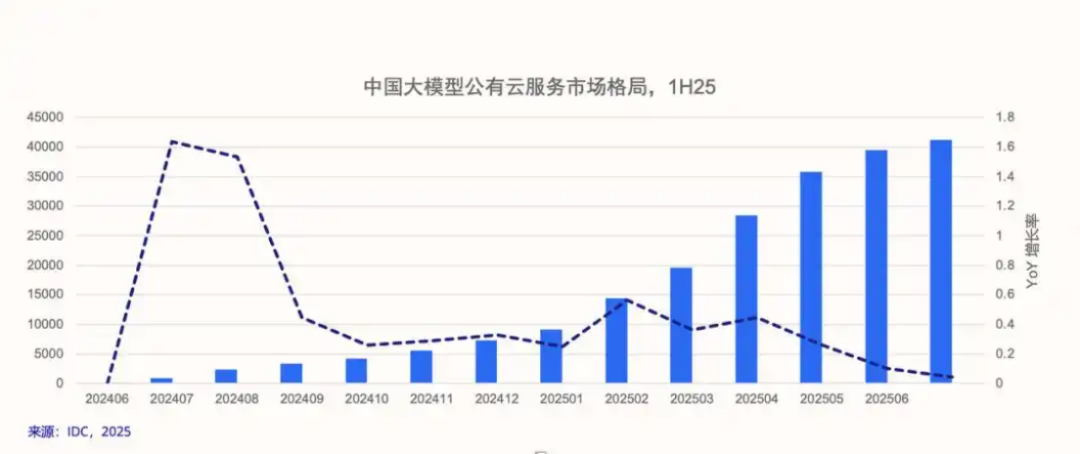In the AI Era, Alibaba Cloud Aims to Be the 'Android': Who Will Step Up as the 'Apple'?
![]() 09/30 2025
09/30 2025
![]() 660
660
From an observer's standpoint, Alibaba Cloud has taken the lead in positioning itself as the 'Android platform'.
At the Yunqi Conference held last week, what left the deepest impression on 'Xiang Xianzhi' was Alibaba Cloud's ambition to become the Android of the AI + Cloud landscape. Since the ban on Huchenfeng, this might mark the first time the term 'Android' has resurfaced in widespread public discussions on such a grand scale. Interestingly, Wu Yongming himself labeled Alibaba as an 'Android platform,' a term that would have faced intense scrutiny just two weeks prior.
This is, of course, a strategic self-identification move. After all, 'Android' and 'Apple' have never been about praise or criticism; rather, they represent different technological routes and business strategies projected onto the market.
If Alibaba can truly achieve its strategic goal of 'Androidization,' it will likely leave few competitors in its wake on the AI track.
The potential for a 'Cloud + AI' landscape resembling the 'Android' vs. 'Apple' rivalry is already showing early signs.
Wu Yongming Aims to Expand Alliances as a Full-Stack Provider
From the 'DeepSeek Moment' on the A-share market in early 2025, which signaled the start of a bull market, to the mid-year surge in the stock price of the 'Cold King,' and extending to the 'Yi-Zhong-Tian' group leaving countless veteran investors in regret, the technology sector has firmly established itself as a critical driver of development.
While it may seem like 'the flag atop the city wall changes with each new ruler,' the underlying narrative remains consistent: China's AI moment has arrived.
Is technology the new trend?
No, it's that the capital markets have discovered a clearer growth logic, with AI + Cloud as the core determinant. Nearly all development is centered around this core group.
The opportunities of the next few decades undoubtedly belong to AI. However, large language models will not always be the focal point of capital. The leading tech companies frequently shift positions, and brief stints at the top may not be as significant as they seem. The flag at the summit might change hands within a month.
The AI + Cloud industrial chain offers the broadest imagination space.
This not only drives accelerated progress in the domestic semiconductor and chip industries but also brings extraordinary opportunities to the entire AI + Cloud industrial chain. Unlike the transformative fate of the internet era, the battle for AI + Cloud is a coliseum for giants and a weapon for dominating the industry's future.
Thus, Wu Yongming, who early on declared Alibaba's ambition to be the 'Android,' and the Alibaba behind him, are determined to become a dominant force in this market. Perhaps, in the eyes of the giants, the future of the AI + Cloud market is not multipolar but bipolar or even unipolar, centered around a single outstanding player in the industry. NVIDIA is undoubtedly the king now and will remain so for the foreseeable future.

Will NVIDIA Always Be the King? Obviously, no king reigns forever. However, it's foreseeable that a massive commercial consortium might become the true king of AI.
If NVIDIA remains solely a 'shovel seller,' its importance will diminish over time. NVIDIA itself recognizes this, as evidenced by its recent ONO alliance with OpenAI and Oracle.
While this alliance currently appears to be a commercial partnership among three companies with significant profit potential, it's hard to deny that it's also a strategic layout for the future—diversifying risks, soaring profits, and not betting everything on perpetual leadership. Only by not relying solely on current advantages can leading positions become more pronounced.
Therefore, in the AI + Cloud field, whether vying for market share or defending against external 'black swans,' expanding alliances and securing sufficient voice in the industrial chain are essential.
This is why Alibaba aims to be the 'Android' of the AI industry. To have sufficient voice and occupy a leading position, a robust ecosystem is necessary, which is why Alibaba is striving to become a full-stack AI service provider.
Firstly, 'open source' is the best way to find friends and the most distinctive feature of an 'Android' platform.
Alibaba's firm commitment to open source has significantly boosted customer acquisition. Combined with its existing market advantages in cloud services and the rapidly iterating, highly capable Qianwen large model family, Alibaba provides compelling reasons for enterprises seeking transformation to choose it.
Bottom-tier services are another focal point. Google and Android's subsequent status were not solely due to the platform's open source attracting enterprises but also because Google's fundamental internet services were highly usable. Google Mobile Services (GMS) is a crucial factor in users choosing the Android platform.
Ask friends studying or traveling abroad: even if they use iPhones, who can live without Google Maps? Google ensures its services while allowing mobile device manufacturers to add extra capabilities selectively. GMS is to Google what Alibaba Cloud is to Alibaba AI.
Regarding full-stack AI, considering bottom-tier computing power, cloud layout, and large model families, only Alibaba and Google globally have simultaneous deployments across these three layers.
Thus, Alibaba naturally aspires to be a dominant force in the industry, early on labeling itself as 'Android.' 'If there are two OSes in the future, Alibaba must be one.'
From the AI industrial chain perspective, the 'Android' of Cloud + AI could very well be Alibaba, as it only lacks a chip compared to ONO.
While the chip issue is indeed a formidable obstacle, whether and when it can be resolved may become clear in the future.
'Android' is Alibaba Cloud, but Who is the 'Apple?'
If we acknowledge Alibaba Cloud as the 'Android' of Cloud + AI, the next question is, who is the 'Apple?'
If you've traveled by air recently, you'll notice that every corner of the airport is plastered with advertisements for Alibaba Cloud and Volcano Engine. Like black and white stones in Go, they attempt to occupy every inch of space to capture the attention of business travelers upon disembarking.
The high repetition and brainwashing effect make one wonder if both companies hired Hua & Hua for their advertising strategies. Indeed, Alibaba Cloud and Volcano Engine dominate significant shares of the AI + Cloud market.

IDC data shows that large model calls on China's public clouds reached 536.7 trillion Tokens. Among them, Volcano Engine leads the Chinese market with a 49.2% share, followed by Alibaba Cloud at 27% and Baidu Intelligent Cloud at 17%.
According to IDC, the report's scope includes large model public cloud service calls provided by major cloud vendors to external customers, excluding calls from their proprietary businesses. IDC notes that as inference and multimodal model capabilities improve, the business model of model calls matures. Compared to the 114 trillion Token market size in 2024, the first half of 2025 alone saw nearly 400% growth.
Interpreting Alibaba Cloud as the 'Android' is quite reasonable. Firstly, its open-source approach lowers the barrier for customer acquisition, providing convenience for developers at the bottom tier.
In contrast, the Doubao large model has abandoned the open-source route, keeping its bottom tier closed while gradually opening up the application layer. This is very 'Apple-like,' isn't it? Unlike Alibaba's forceful approach, Volcano Engine prefers a nimble, small-and-beautiful strategy.
Volcano Engine's strategy is application-layer open source, enabling small startup teams to get started and lowering the barrier for AI usage. 'Low-code' is a distinctive feature of Volcano.
While the bottom tier remains closed, the platform ensures developer comfort at the application layer, focusing on product quality. This attracts small startup teams for low-cost trial and error.
This is another Apple-like trait: providing ready-to-use frameworks and ensuring ease of use, lowering the entry barrier. Volcano offers a clearer set of usage scenarios, allowing developers to achieve decent growth even by following Volcano's established routes.
Thus, Volcano's essence is still promoting its products, acquiring customers on the B-end while also targeting small teams composed of pan-consumer (pan-C-end) users and developers, adopting a highly integrated model akin to Apple's hardware-software integration.
After all, Volcano lacks the customer advantage accumulated by Alibaba over the years. Accelerating customer acquisition through market promotion of more concrete products is more reasonable.
However, Volcano does differ from Apple in one aspect: it adopts a low-price, high-volume strategy to sell tokens.
Of course, this is also a market strategy. Volcano's platforms and products have too many scenarios touching C-end users. Downplaying user cost awareness in the early stages allows it to go further.
Will Alibaba and Volcano Engine Be the 'Android' and 'Apple' of AI + Cloud?
It's too early to conclude.
In terms of players, Huawei, Baidu, and various international firms are lurking; in terms of applications, AI is far from meeting strong demand from the general public. However, when discussions about who is at the industry's forefront and market's lead begin, the next industry transformation might not be far off.








